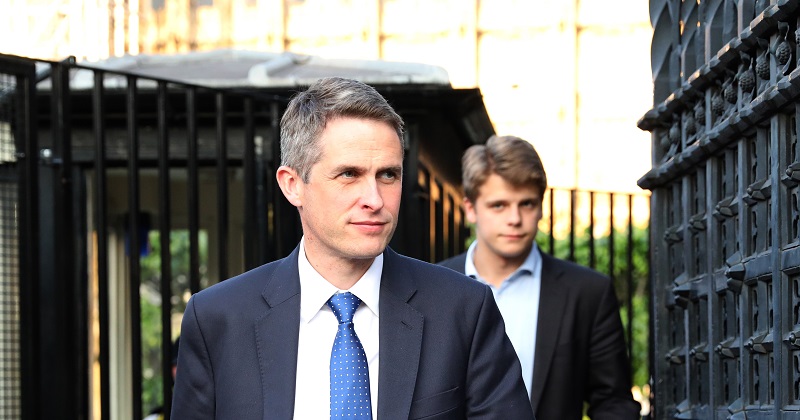The new education secretary must prioritise targeted investment in teachers and school leaders, argues Melanie Renowden.
At Ambition Institute, we know that the quality of teaching and school leadership are the best levers – within control of the school system – for improving pupil outcomes, especially for children from disadvantaged backgrounds.
Evidence shows us that improving the quality of teaching and leadership is the best way to close the attainment gap
But we must ensure that interventions which aim to improve educator quality are rooted in the evidence of what works, or any additional funding injected by the new government will be wasted.
Boris Johnson’s pledge on the steps of Downing Street – to increase per pupil spending, and deliver fair school funding across the country – was certainly a welcome one. Although unions and school leaders have been underwhelmed by the figures that have been touted so far, this is certainly a step in the right direction for the school system.
Now is the time to get stuck into the details. This year’s state of the nation report from the Social Mobility Commission warned that inequality is “entrenched from birth” in British society, with concerns that the gap between rich and poor could widen further if the government does not take action.
In the same report, the Commission described schools as an “essential vehicle” for social mobility. As only the second education secretary to have attended a comprehensive secondary school, Gavin Williamson should know the truth of this better than most of his predecessors.

But, to continue the commission’s metaphor, a vehicle is only as effective at the people driving it. These are the teachers in the classroom and the leaders shaping the strategy, curriculum and culture to move the school forward. And these drivers need to have the skills, knowledge and shared motivation to get their school to its destination: a great education for every child (okay, I may have stretched the metaphor a bit too far there).
Professional development is crucial to building the skills and knowledge of our educators; and the evidence shows us that improving the quality of teaching and school leadership is the best way to close the attainment gap between disadvantaged pupils and their peers.
Gavin Williamson inherits from his predecessor the teacher recruitment and retention strategy, a set of policies and recommendations which have received wide-ranging support from the sector. Educator development sits at the centre of this strategy, with the early careers framework and new specialist qualifications among the innovations under development to build the expertise of the school workforce.
The majority of professional development for teachers and school leaders does not have an impact on their day-to-day practice, and even less on outcomes for children
But I urge the new education secretary to keep a close eye on the evidence here. Of course, as the CEO of a charity which provides development programmes for educators serving in disadvantaged schools, I want to see continued investment in this area.
However, as it stands, evidence suggests that the majority of professional development for teachers and school leaders does not have an impact on their day-to-day practice, and even less on outcomes for children.
We are in the process of reviewing our own programme offer to ensure that it is informed by the very latest evidence on what works.
In 2017, independent evaluators assessed that our teaching leaders programme was the first example of a middle leadership training programme which had a direct impact on pupil outcomes. In the same year, our Future Leaders programme for aspiring headteachers was shown to accelerate progress to headship and support retention in the system.
But we are not resting on our laurels.
There has never been more urgency to make the right investment in England’s educators. This is a pivotal moment for our society. Brexit has exposed fault lines and increased divisions. The past three years have split not only Parliament but also communities and families.
Whatever happens after October 31, we will need to re-build our society to thrive in a new international landscape – and our schools and educators will be at the chalk face of that work.
I hope that the education secretary, along with the prime minister, will prioritise evidence-informed investment in the development of the school workforce, so that we can nurture the next generation of well-rounded, engaged and qualified citizens ready to take on the world.







I disagree with the article. First and foremost, workload must be tackled. Year after year, promise after promise is made. But few have seen any real reduction to their punishing and exhausting daily grind. A real limit of 45 hours a week must be introduced, over and above which Headteachers cannot require teachers to perform unlimited tasks. Without a legal guarantee, all this tinkering with workload will continue come to nothing.
There is no point to ‘more training’. Every week, we read about yet another ‘expert body’ or other demanding yet more training to address their own particular beef or interest. Yet every hour a teacher is out of class means hours of more work for them; they have to invariably set the cover work, then pick up the pieces and find time on returning as cover is never a substitute for being there in class. Then they have to also find time to attend the training, read the training materials, then plan any introduction with all the disruption that causes. We haven’t mentioned time to present what was learnt to other teachers either, and to make sure any new things are OFSTED friendly. And who is paying for all the costs involved?
In short, teachers do not want more professional training for whatever has made it into the news recently. The vast majority know how to teach and just want to be left alone to do their core job. What they all want more than anything is time.